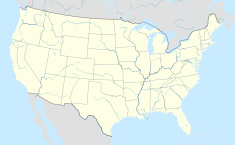Reconstruction Era National Monument
| Reconstruction Era National Monument | |
|---|---|
| Location | Beaufort County, South Carolina |
| Coordinates | 32°25′57″N 80°40′14″W / 32.43250°N 80.67056°WCoordinates: 32°25′57″N 80°40′14″W / 32.43250°N 80.67056°W |
| Area | 64.99 acres (26.30 ha) |
| Website | Reconstruction Era National Monument |
| Designated | January 12, 2017 |
The Reconstruction Era National Monument is a United States National Monument in Beaufort County, South Carolina established by President Barack Obama in January 2017 to preserve and commemorate activities during the Reconstruction Era that followed the American Civil War. The monument is the first national monument dedicated to the Reconstruction era. It is administered by the National Park Service.
The campaign to create e Reconstruction Era National Monument spanned fifteen years, beginning in the final days of the Bill Clinton administration, when outgoing Interior Secretary Bruce Babbitt visited the Beaufort area, accompanied by historian Eric Foner, author of the book Reconstruction: America's Unfinished Revolution, 1863–1877. The initial effort to create the national monument failed in Congress amid opposition from the Sons of Confederate Veterans. In 2004, when the creation of a Beaufort Reconstruction History Park was being considered, the Sons of Confederate Veterans organized a campaign to persuade U.S. Representative Joe Wilson (who then represented the area of the proposed park) to oppose it. After receiving letters from the group's members and meeting with the group, Wilson told the National Park Service that he would not support the park.
The proposal was revived in 2015, however, after two historians commissioned by the Park Service—Gregory Downs of the University of California, Davis and Kate Masur of Northwestern University—undertook a field study of sites associated with the Reconstruction era and issued a report entitled National Historical Landmark Theme Study on the U.S. Reconstruction Era, 1861–1898. At an April 2016 symposium entitled "The Reconstruction Era: History and Public Memory" in Columbia, South Carolina, sponsored by Historic Columbia and the University of South Carolina History Center, Downs, Masur, and others spoke. At that symposium, a Park Service official indicated that opposition to the proposed national monument from the Sons of Confederate Veterans had softened.
...
Wikipedia


